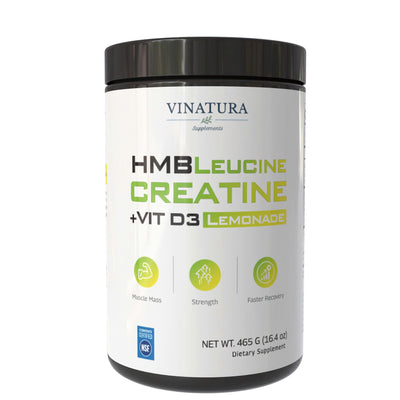
Does Soy Lower Testosterone? Science-Backed Answer
Soy is a nutritious source of protein and fiber, but many men believe it lowers testosterone, the male sex hormone. This concern is especially common among gym-goers and those interested in reproductive health. To clarify, let’s explore the question “Does soy lower testosterone?” using scientific evidence.
Before exploring further, please read the disclaimer located at the end of this webpage.
Key Takeaways
- Soy protein/isoflavones do not significantly affect men’s testosterone.
- Isoflavones act as weak estrogens; moderate intake causes no feminizing effects.
- Hormone changes appear only with extremely high, short-term consumption.
- Soy protein has all essential amino acids and supports muscle growth like dairy.
- Soy protein may lower LDL cholesterol by 3–4%, aiding heart health.
Does Soy Lower Testosterone?
Whether in the form of protein or isoflavones, soy does not significantly decrease testosterone levels in men.
A meta-analysis evaluating multiple soy-derived products concluded: “The results of this meta-analysis suggest that neither soy foods nor isoflavone supplements alter measures of bioavailable T concentrations in men.” (Hamilton-Reeves, et al. 2009).
Why People Think Soy Lowers Testosterone

Concerns about soy lowering testosterone largely stem from its structure. Soy contains isoflavones—plant compounds with structures similar to the female hormone estrogen, though far weaker, including genistein and daidzein [2]. Because of this similarity, some believe high soy intake could diminish “masculinity.”
Additionally, scattered online reports describe rare cases where heavy soy consumption led to feminizing symptoms (e.g., breast enlargement, fatigue, erectile dysfunction) and lower testosterone (Imai, et al. 2022) [3].
One such case involved a man drinking 1.2 liters of soy milk daily for three consecutive years, leading to those symptoms. While such cases are extremely rare, they circulate online and fuel unnecessary fears and misconceptions.
The Reality of Eating Soy in Normal Amounts
Scientific evidence consistently shows that eating soy in normal amounts does not disrupt male hormones. A 2021 meta-analysis by Reed and colleagues found no significant effect of soy or isoflavones on total testosterone, free testosterone, or estradiol in men (Reed, et al. 2020).
Even large-scale reviews confirm no measurable changes in testosterone or estrogen levels, even at higher-than-usual intakes [5]. This review also reported that soy and isoflavone consumption in men showed no link to fertility rates or other reproductive markers, including testosterone.
Further, controlled clinical trials consistently find no hormonal differences between soy-consuming groups and control groups. For example, one study comparing soy milk versus cow’s milk after resistance training found no differences in testosterone or estrogen levels between the two groups [6].
In summary, eating soy foods like tofu, soy milk, or roasted soybeans in typical amounts is safe for men and does not cause the testosterone drop long rumored.
At What Point Should You Worry?
So the question many people may now be asking is: When does soy consumption become a real concern?
Returning to the case of the man who drank 1.2 liters of soy milk every day, this is an extremely high level compared to average intake. Typically, most people only consume a few dozen milligrams of isoflavones daily.
Even populations with soy-rich diets, such as in Japan, usually take in about 30–50 mg of isoflavones per day without issues (Messina, et. al. 2022).
A daily intake of 1.2 liters of soy milk provides more than 300 mg of isoflavones, which is about 6–10 times higher than the usual range.
This man maintained this habit for three years and experienced feminizing symptoms and lowered testosterone, but his condition gradually improved after stopping soy consumption.
The key is to keep soy intake moderate—enjoy it as part of a balanced diet and avoid excessive supplements or large amounts of soy milk.
Additional Health Benefits of Soy

Aside from its effects on hormones, soy offers several other health-supportive benefits. Some of the most notable include:
1. Soy is a high-quality protein source that contains all essential amino acids, comparable to protein from meat and dairy.
It is suitable for vegetarians and supports muscle growth by stimulating muscle protein synthesis (MPS) and enhancing muscle mass and strength in response to resistance exercise training (RET) (Messina, et. al. 2022).
2. Soy protein can help reduce LDL (bad) cholesterol by about 3–4% and lower total cholesterol, contributing to heart health (Blanco Mejia, et. al. 2019).
Isoflavones in soy also function as antioxidants, which may support bone health, lower blood pressure, and benefit cardiovascular function.
3. Diets rich in soy are also linked to better insulin sensitivity, which can help lower the risk of diabetes and certain chronic conditions (Imai, et. al. 2022).
In summary, based on scientific evidence, soy is a nutrient-dense food that deserves a place in your daily meals when consumed at reasonable amounts.
Conclusion
In summary, modern research confirms that consuming soy at typical dietary levels does not reduce testosterone in men.
Claims that soy “feminizes” men are largely based on rare, high-dose, long-term cases that are far from real-life eating habits. On the other hand, soy is a nutrient-rich food with benefits for heart health and fitness, making it a valuable part of a balanced diet.
However, the information in this article is for reference only; if you have specific concerns about hormonal health, consult a physician or nutrition expert for personalized advice.
Frequently Asked Questions
1. Is Soy Bad for Testosterone?
No, soy does not reduce or negatively affect testosterone levels in men. Multiple meta-analyses have shown that testosterone concentration remains unchanged with soy consumption.
In fact, only extremely high doses of isoflavones have shown effects, so a normal diet including soy is safe for male hormones.
2. Does Soy Milk Lower Testosterone?
Drinking soy milk does not reduce testosterone in men. One study conducted after resistance training showed no significant difference in testosterone or estrogen levels between the soy milk group and the cow’s milk group (Craddock, et. al. 2024) [6].
In other words, using soy milk as a protein source (despite containing phytoestrogens) does not lead to lower testosterone compared to regular milk. Consuming soy milk at typical dietary levels is safe for hormone balance.
3. Does Soybean Oil Lower Testosterone?
There is currently no evidence that soybean oil lowers testosterone. On the contrary, a study in mice found that diets high in soybean oil increased testosterone production through pituitary hormone regulation (Su et al. 2021) [8]. However, this finding is limited to animal studies, and its relevance to human testosterone regulation remains uncertain.
In humans, soybean oil is mostly used as cooking oil at moderate amounts; there are no reliable reports linking soybean oil to reduced testosterone levels.
4. Does Soy Lecithin Lower Testosterone?
Soy lecithin (an emulsifier derived from soy) contains negligible amounts of isoflavones and therefore does not affect male hormones.
One laboratory study noted that soy lecithin showed estrogen-like activity in vitro, but this was only an observation in cell experiments and does not represent effects in the human body (Behr, et al. 2011).
Thus, there is no research to date showing that soy lecithin reduces testosterone. Most isoflavones are removed during lecithin production, so the final product does not cause feminizing effects in men.
5. Is Soy Protein Bad for Muscle Growth?
No, soy protein supports muscle development on par with animal proteins. Soy protein is rich in leucine, a key amino acid for muscle protein synthesis, and multiple studies have shown that soy protein supplementation leads to gains in muscle mass and strength similar to whey or meat proteins (Messina, et. al. 2022) [5].
These studies conclude that when overall protein intake is sufficient (meeting leucine thresholds), the specific protein source has minimal impact on muscle outcomes. Therefore, gym-goers can confidently use soy to build muscle without losing effectiveness compared to animal protein.
6. Can Soy Increase Estrogen in Men?
There is no evidence that soy raises estrogen in men. Meta-analyses have demonstrated that estradiol (the main estrogen) levels remain unchanged with soy consumption (Reed, et al. 2020) [4].
Isoflavones bind weakly to estrogen receptors, but clinical studies show they do not significantly increase endogenous estrogen. Therefore, eating soy at normal dietary levels does not raise estrogen in men.
Testimonial Disclaimer
*The testimonials presented on this website are provided by individuals based on their personal experiences with our products. These testimonials represent individual opinions and experiences, which may not be typical or applicable to all users of our products. Results may vary depending on a variety of factors, including individual health, lifestyle, and adherence to product usage instructions.References
- [1] Hamilton-Reeves, Jill M., et al. “Clinical Studies Show No Effects of Soy Protein or Isoflavones on Reproductive Hormones in Men: Results of a Meta-Analysis.” Fertility and Sterility, vol. 94, no. 3, Elsevier BV, June 2009, pp. 997–1007, https://doi.org/10.1016/j.fertnstert.2009.04.038.
- [2] “Straight Talk about Soy • the Nutrition Source.” The Nutrition Source - Harvard Chan School, 6 Aug. 2018, nutritionsource.hsph.harvard.edu/soy/
- [3] Imai, Hideyuki, et al. “Secondary Hypogonadism due to Excessive Ingestion of Isoflavone in a Man.” Internal Medicine, vol. 61, no. 19, Japanese Society of Internal Medicine, Oct. 2022, pp. 2899–903, https://doi.org/10.2169/internalmedicine.8578-21.
- [4] Reed, Katharine E., et al. “Neither Soy nor Isoflavone Intake Affects Male Reproductive Hormones: An Expanded and Updated Meta-Analysis of Clinical Studies.” Reproductive Toxicology, vol. 100, Elsevier BV, Mar. 2021, pp. 60–67, https://doi.org/10.1016/j.reprotox.2020.12.019.
- [5] Messina, Mark, et al. “The Health Effects of Soy: A Reference Guide for Health Professionals.” Frontiers in Nutrition, vol. 9, Frontiers Media, Aug. 2022, https://doi.org/10.3389/fnut.2022.970364.
- [6] Craddock, Joel C., et al. “Acute Effects of Dairy or Soy Milk on Sex Hormones Following Resistance Exercise in Males: A Randomized, Crossover Pilot Trial.” Cureus, Cureus, Inc., May 2024, https://doi.org/10.7759/cureus.59972.
- [7] Blanco Mejia, Sonia, et al. “A Meta-Analysis of 46 Studies Identified by the FDA Demonstrates That Soy Protein Decreases Circulating LDL and Total Cholesterol Concentrations in Adults.” Journal of Nutrition, vol. 149, no. 6, Elsevier BV, Jan. 2019, pp. 968–81, https://doi.org/10.1093/jn/nxz020.
- [8] Su, Yu, et al. “Effects of Increasing Intake of Soybean Oil on Synthesis of Testosterone in Leydig Cells.” Nutrition & Metabolism, vol. 18, no. 1, BioMed Central, May 2021, https://doi.org/10.1186/s12986-021-00580-1.
- [9] Behr, Maximilian, et al. “Estrogens in the Daily Diet: In Vitro Analysis Indicates That Estrogenic Activity Is Omnipresent in Foodstuff and Infant Formula.” Food and Chemical Toxicology, vol. 49, no. 10, Elsevier BV, July 2011, pp. 2681–88, https://doi.org/10.1016/j.fct.2011.07.039.
Author

Product Disclaimer
Including an ingredient or study does not evaluate, endorse, or recommend any Vinatura product or any third-party product. Some ingredients discussed may not be used in any Vinatura product.
The content of the articles has not been evaluated by the Food and Drug Administration (FDA) and is not intended to promote or endorse any specific product. Any products sold on this website are not intended to diagnose, treat, cure, or prevent any disease.
Opinions and Endorsements
Any claims, statements, or opinions expressed in the articles are those of the author(s) and do not necessarily reflect the views or opinions of the manufacturers of the dietary supplement products. The products sold on this website are separate from the content of the articles and are not directly endorsed or associated with the information presented here.
Liability Disclaimer
The author(s) of the articles, website, and manufacturers of the dietary supplement products do not assume any liability for any potential consequences arising from the use of the information provided in the articles. Ingredient effects, dosages, and safety vary by individual, formulation, and context; some ingredients interact with medications or may be unsuitable during pregnancy or lactation. It is recommended that individuals consult with a qualified healthcare professional before making any dietary or lifestyle changes, including the use of dietary supplements.
Product Usage
Please refer to the product labels and packaging for specific usage instructions and guidelines for the dietary supplement products sold on this website.
Customer Support
For any concerns or questions regarding the dietary supplement products, please contact our customer support team, who will be more than happy to assist you.





Leave a Comment
Be the first to comment.
What do you think?